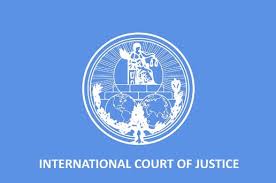Doctrine of Renvoi in Private International Law
📘 Doctrine of Renvoi in Private International Law
🔹 What is Renvoi?
Renvoi is a concept in Private International Law (Conflict of Laws) where the court of one country, applying foreign law, is referred back to its own law or to the law of a third country by that foreign legal system.
The word "Renvoi" is French, meaning "send back" or "refer back".
🔹 Purpose of Renvoi:
Renvoi arises when a court is required to apply foreign law, and it must decide whether to apply only the internal (substantive) law of that foreign country, or the entire foreign legal system, including its conflict-of-laws rules.
🔹 When Does Renvoi Apply?
Renvoi typically arises in cases involving:
Succession (inheritance)
Matrimonial causes
Capacity of persons
Domicile and nationality
🔹 Types of Renvoi:
1. Single Renvoi (Partial Renvoi):
The forum court (court hearing the case) applies foreign law, and the foreign law refers back to the forum.
The forum accepts the reference back and applies its own law.
2. Double Renvoi (Foreign Court Theory):
The forum court adopts the position that the foreign court would itself refer the case to yet another legal system (including back to the forum or to a third country), and applies the law that the foreign court would apply.
🔹 Example of Renvoi:
Hypothetical:
A person dies domiciled in France, but owns immovable property in England.
Under English law (lex situs), the law governing immovable property is the law of where the property is located — English law.
However, English law refers to French law (law of the deceased’s domicile) for matters of succession.
French law, in turn, may refer back to English law for immovables.
This referring back is renvoi.
🔹 Leading Case:
🔹 In re Annesley (1926) Ch 692
Facts: A British woman domiciled in France died, leaving immovable property in England.
English law (lex situs) applied French law (law of domicile), and French law referred back to English law for immovables.
The English court accepted the renvoi and applied English law.
Significance:
The case illustrates acceptance of renvoi, where the English court applied its own law because French law referred the matter back.
🔹 Arguments For and Against Renvoi:
✅ Arguments in Favor:
Promotes harmony of decisions (same result in different courts).
Respects the foreign legal system holistically.
Useful in succession and family law, where jurisdictions often differ in fundamental legal principles.
❌ Arguments Against:
Complexity: Creates confusion and circular references.
Unpredictability: Outcomes may vary depending on interpretation.
May conflict with the principle of legal certainty.
Some legal systems (e.g., U.S.) reject renvoi entirely.
🔹 Approach in Different Countries:
| Country | Approach to Renvoi |
|---|---|
| England | Accepts renvoi in succession cases only |
| France | Generally accepts renvoi |
| Germany | Limited acceptance |
| USA | Usually rejects renvoi |
| India | No explicit codified rule, but courts have occasionally accepted renvoi in succession and family law cases |
🔹 Summary Table:
| Feature | Description |
|---|---|
| Meaning | Application of foreign law's conflict rules, leading to referral back |
| Purpose | To respect the foreign legal system fully and reach consistent outcomes |
| Types | Single Renvoi, Double Renvoi |
| Common Areas Applied | Succession, family law, capacity, domicile |
| Key Case | In re Annesley (1926) |
| Common in | France, England (limited), some civil law countries |
| Rejected in | USA (mostly), some common law systems |
🔚 Conclusion:
The Doctrine of Renvoi is a complex but significant principle in Private International Law. It reflects the tension between applying foreign law faithfully and maintaining legal certainty. While some jurisdictions embrace it selectively, others prefer to avoid the complications it brings.












comments